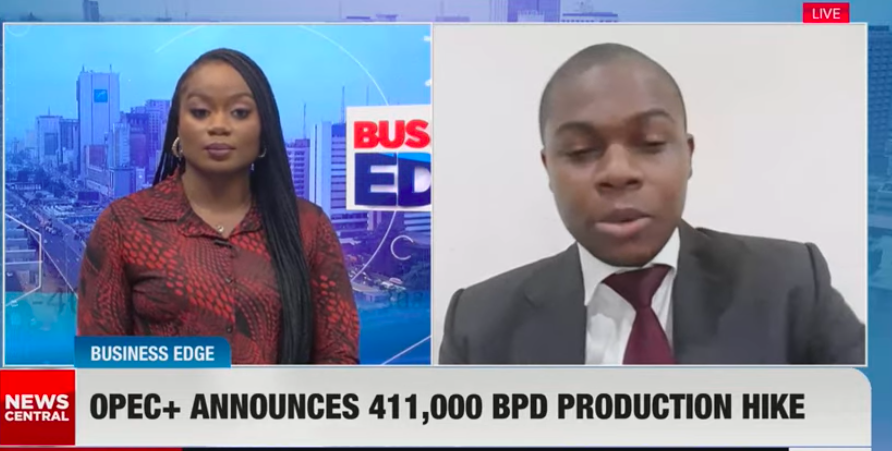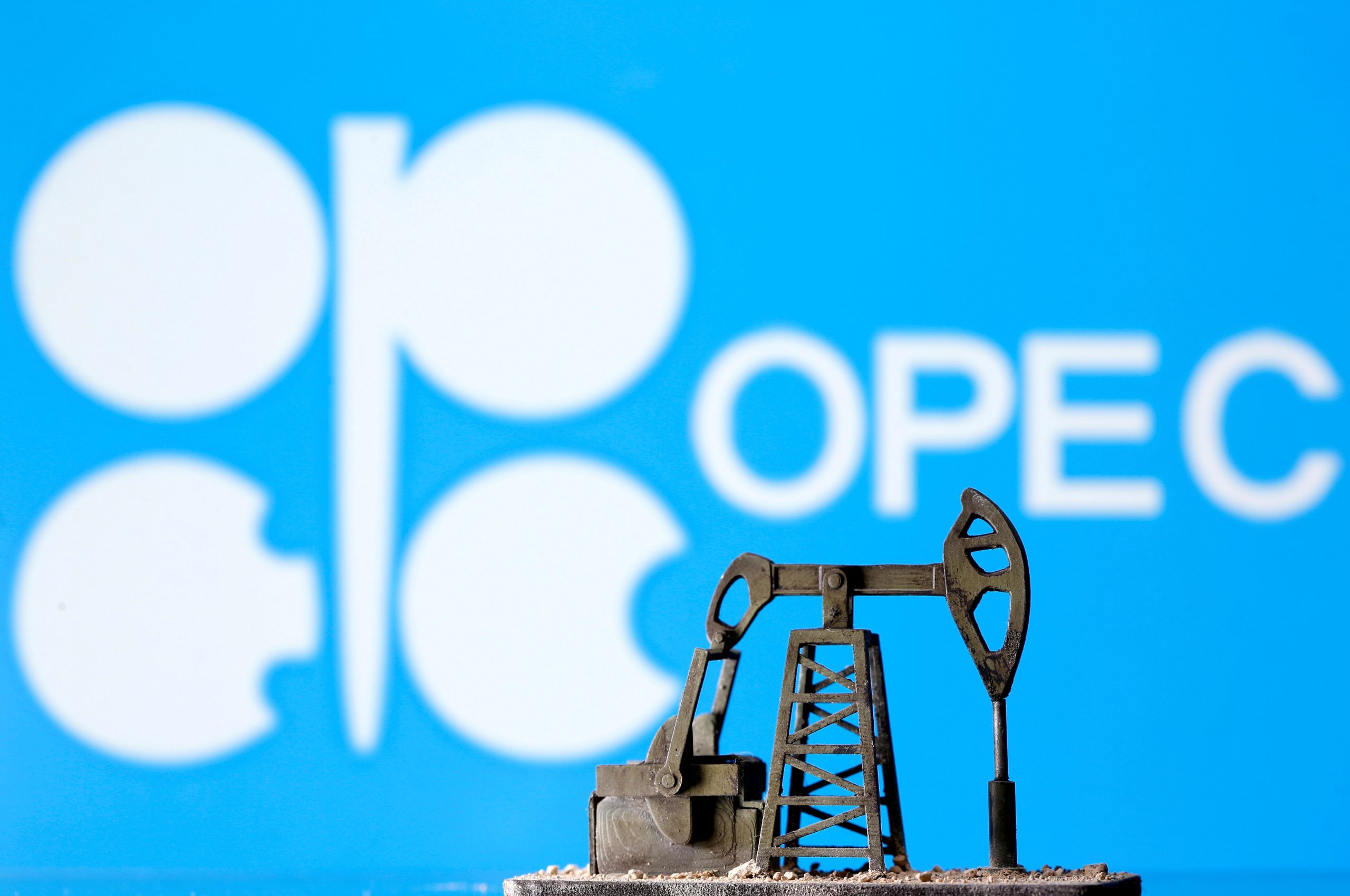OPEC+ has announced an increase in its oil production by 411,000 barrels per day (BPD), a move aimed at maintaining market competitiveness, according to Temitope Kolade, Associate Director, Oil, Gas, & Power at Andersen Nigeria.
Speaking on News Central’s Business Edge on Wednesday, Kolade highlighted the significant implications of this decision, particularly for Nigeria’s economy.
The latest adjustment by OPEC+ comes after the cartel had previously agreed to a 2 million BPD production cut. The current hike represents approximately 62 per cent of that initial reduction being gradually reintroduced to the market.
Kolade explained that this strategy allows the cartel to balance between “winning by price or by volume,” acknowledging that while they don’t fully control the global market, they need to respond to increased output from other oil-producing nations.
“The decision, taken on Monday, saw oil prices initially spike by about $2.50. This uptick is largely attributed to expectations of increased demand during the upcoming summer months, which typically see more travel and higher crude intake by refineries.

“Geopolitical tensions also played a role, with a recent Ukrainian strike on Russian oilfields further contributing to the price surge,” he said.
Furthermore, the analyst noted that China’s industrial demand remains a significant, albeit somewhat opaque, factor. An expected increase in Chinese crude intake could lead to overall price moderation in the global market.
For Nigeria, an oil-producing nation, the OPEC+ decision and current global oil prices present considerable challenges.
Kolade pointed out that Nigeria’s budget was predicated on a target oil price of approximately $78 per barrel, whereas current prices hover around $65 per barrel, having recently been as low as $58-$60. This creates a significant revenue shortfall.
“What that means for us is, how do we defend our Naira the way the Central Bank of Nigeria (CBN) has been trying to do if there is no reserve?” Kolade stated. This scarcity of foreign exchange reserves could force Nigeria to “continue to depend on some sort of loans from outside Nigeria, from the IMF and all of those,” negatively impacting the nation’s fiscal position.
Kolade emphasised that Nigeria faces a “double whammy,” struggling not only with reduced foreign exchange earnings from lower oil prices but also with the increased cost of importing refined products due to the scarcity of foreign currency.
While a productive economy is seen as a medium- to long-term solution, short-term measures are critical. “What can be done in the short term would be to say, Can we ensure that these refineries start getting to work?” he recommended. This would allow Nigeria to process its crude, deriving greater benefit from its production and potentially moderating the high costs associated with importing refined products.


 Trending
Trending 
